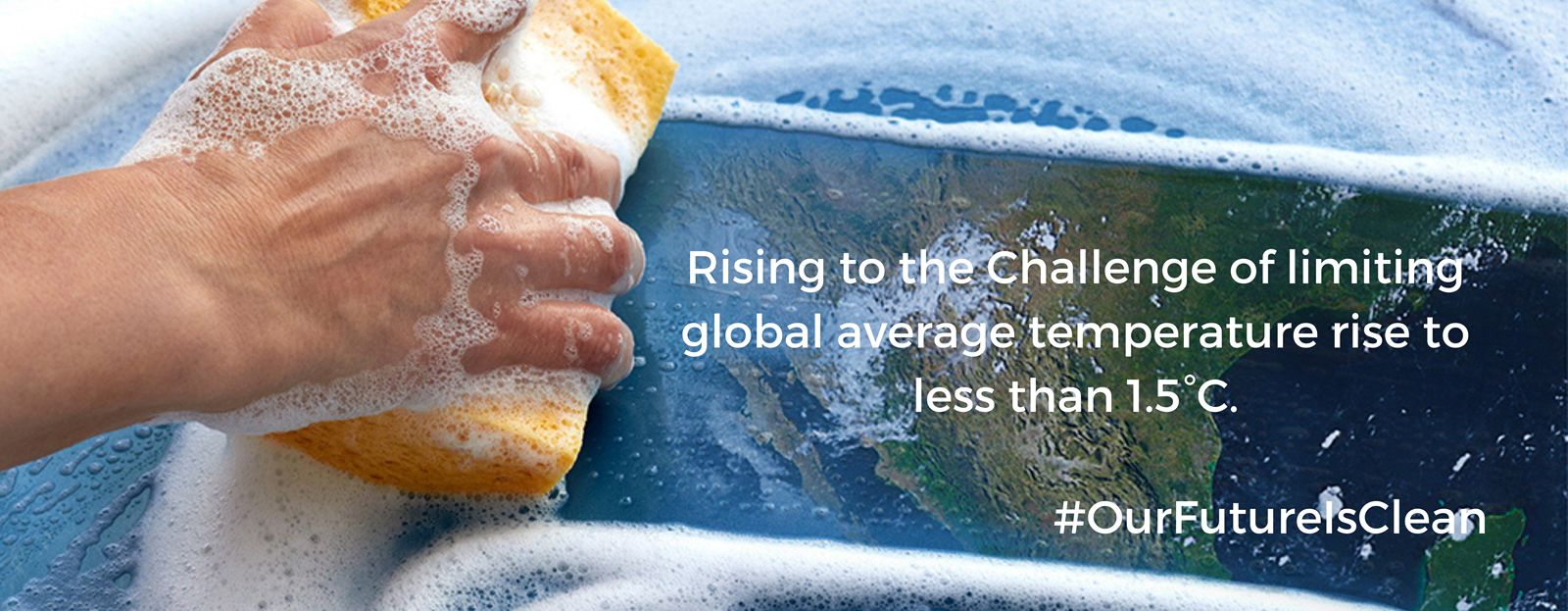Goal: Reduce Emissions

Climate change is one of the most serious threats the world faces and tackling it requires concerted, collaborative and sweeping efforts. ACI recognizes that bold action is needed – by everyone. We all have a role to play, and we know that we need to do more in order to limit global temperature increase.
Goal: Reduce greenhouse gas (GHG) emissions across the cleaning products value chain as part of our industry’s collective efforts to confront climate change.
Effective climate action is needed on many fronts, including supporting customers to be environmentally conscious; creating innovative, low impact products; and driving down manufacturing GHG emissions.
Industry Initiatives:
Learn about our Net Zero Emissions Climate Challenge.
-
CDP
Climate Leadership Demonstrated by CDP A-Listers
Nonprofit CDP runs a global disclosure system that helps companies manage their environmental impacts by measuring and understanding them. Every year, CDP names businesses leading on environmental performance to the annual A List. In 2020, CDP recognized more than 277 corporations, including our members BASF, Colgate-Palmolive Company, Corbion, Ecolab, Firmenich, Givaudan, International Flavors & Fragrances (IFF), Kao Corporation, L’Oréal, Sekisui and Unilever. Firmenich, Kao Corporation, L’Oréal and Symrise stand out with their ‘A’ designation across all three CDP performance areas of Climate Change, Water Security and Forests.
-
Science-Based Targets
Setting Targets That Support the Global Climate Goal
Targets adopted by companies to reduce GHG emissions are considered “science-based” if they are in line with what the latest climate science says is necessary to meet the goals of the Paris Agreement – to limit global warming to well below 2°C above pre-industrial levels and pursue efforts to limit warming to 1.5°C.
The Science Based Targets Initiative is leading the charge in championing and institutionalizing science-based targets within businesses. The initiative has over 611 companies committed to taking action and has approved 232 science-based targets for GHG emissions reductions.
These commitments highlight a desire to not stop at what is easily achievable, but to help ensure a company is doing at least what is necessary to meet the global goal. To date, 19 of our members have approved targets as part of this initiative: Clariant, The Clorox Company, Colgate-Palmolive, Corbion, Ecolab, Firmenich, Givaudan, Henkel, IFF, Kao Corporation, L’Oréal, P&G, Reckitt, Sekisui, Seventh Generation, Novozymes, Symrise, Unilever and Veolia. Seven additional member companies – Arkema, Ashland, , Croda, Galaxy Surfactants Limited, Solvay, Takasago and Univar – are seeking approval of their science-based targets.
-
RE100
Driving to 100 Percent Renewable Energy
Switching worldwide electricity consumption to renewables is transforming the global energy market and accelerating the transition to a clean economy. As part of The Climate Group’s RE100 initiative, more than 290 companies have made a public commitment to go “100% renewable.” This includes eleven of our members – Corbion, Ecolab, Firmenich, Givaudan, IFF, Novozymes, P&G, Reckitt, Sekisui Chemical Group and Unilever – all of whom have set goals to power their operations from renewable sources within specified timeframes.
-
Cold Water Saves
Our members are working hard to reduce GHG emissions throughout their supply
chains. At ACI, we are increasingly thinking about how we can reduce emissions from
the consumer stage of product life cycles. Cold Water Saves is our campaign to
promote cold water laundry washes.About 90 percent of the energy used by washing machines is for heating water; washing in cold water saves this energy. Also, most of the energy used in a detergent’s life cycle is during its use in the wash. We know that changing consumer behavior to wash on cold will make a huge difference in helping reduce emissions associated with laundry and addressing our collective climate change impact.
In addition, cold water is gentler on fabrics, it can protect and increase the longevity of clothes, saving people money and decreasing their carbon footprint to help save the planet. Many of today’s detergents have been developed to work effectively on the cold cycle, and ACI members are continually improving technology so that we can be sure of an effective clean, even when the dial is turned down. For example, new detergent technology has introduced enzymes that work best in cold water, so users won’t be compromising on the quality of the wash. And cold water has a great advantage – there is no fear of tie-dyeing unsorted loads!
Cold Water Saves is working to get the message to all consumers that washing on cold is best. The bottom line is cold water washing saves people money, saves clothes and saves the planet.